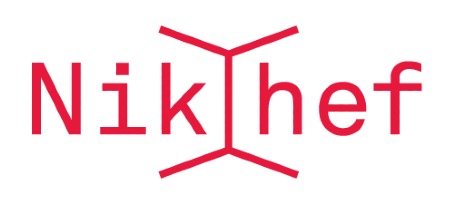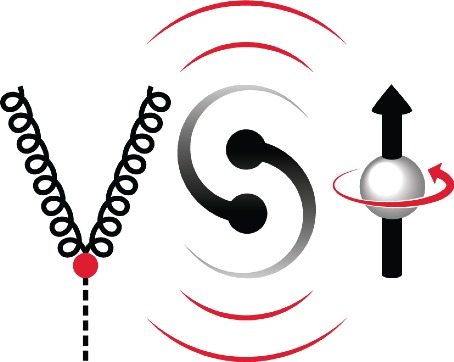Search for new physics with low-energy precision tests
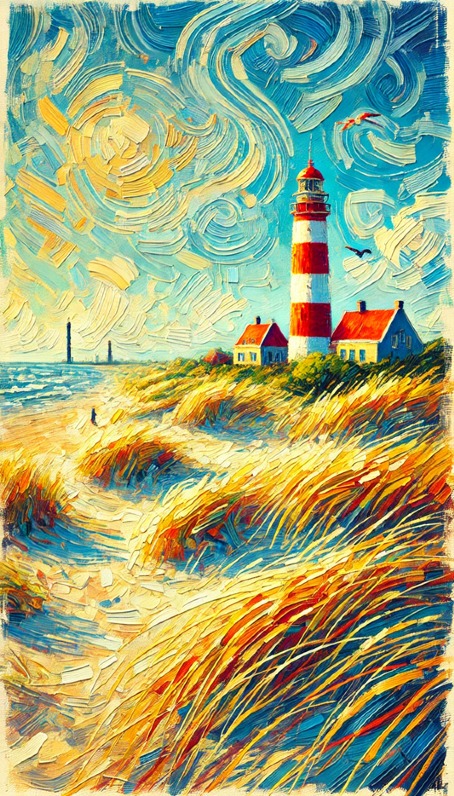
With this summer school we aim to provide young scientists (Masters, PhDs, and Postdocs) with a comprehensive introduction to different aspects of the search for physics beyond the Standard Model. A special focus of the school is to bring together people working on experiments and theory. Topics will include the status of the Standard Model and its extensions, parity violation, experiments to search for the electron electric dipole moment and for variation of the fundamental constants, methods to manipulate and control atoms, ions and molecules, and theoretical approaches. By bringing together enthusiastic scientists and students from different disciplines connected to the search for physics beyond the Standard Model we hope to foster the development of this field and to encourage new collaborations. And of course, we also hope to have fun in the process!
Practical information
|
Dates
|
29 June – 4 July 2025 |
|
Location
|
Ameland, The Netherlands |
|
Level
|
MA / PhD / Postdoc |
|
Fee includes full accommodation with breakfast, lunch and dinners, and a social (beach) activity and conference dinner. Not included is the transportation to and from Ameland. We will however organize travel from Groningen to Ameland and back, on Sunday morning of 29 June and Friday afternoon of 4 July. |
€ 995 |
|
Academic coordinator
|
Steven Hoekstra, Anastasia Borschevsky Van Swinderen Instituut, FSE
|
|
Contact |
New-physics-summerschool rug.nl Secretariaat: Iris de Roo-Kwant, Annelien Blanksma
|
Requirements
This course is designed for Master students considering a PhD in this research field, PhD students at all levels, and postdocs. We expect our participants to be interested in low-energy precision tests of fundamental physics. Since our school connects theory and experiments, you do not have to be knowledgeable on both fronts.
It is expected that the participants have a sufficient command of the English language to actively participate in the discussions and to present their own work in English.
Course schedule
We have lectures planned on:
-
Experiments with molecules, such as electron-EDM searches with polyatomic systems
-
Atomic and molecular theory to explore new physics
-
Effective field theory to describe new physics
-
Methods to produce and prepare radioactive molecules for precision experiments
Learning outcomes
After this course you will be able to:
-
Identify connections between atomic, molecular and particle physics
-
Describe a number of key low-energy precision experiments that probe new physics
-
Make new connections in your research field
Workload & certificate
Preparation: 16 hours
Lectures: 16 hours
Presentation: 4 hours
Study and discussion: 20 hours
Upon successful completion of the programme, the Summer School offers a Certificate of Attendance that mentions the workload of 56 hours (28 hours corresponds to 1 ECTS). Students can apply for recognition of these credits to the relevant authorities in their home institutions, therefore the final decision on awarding credits is at the discretion of their home institutions. We will be happy to provide any necessary information that might be requested in addition to the certificate of attendance.
Introduction to lecturers
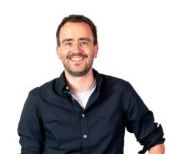
Jordy de Vries
I am an Associate Professor at the University of Amsterdan and Nikhef. I work on precision tests of the Standard Model and the application effective field theories for particle and nuclear physics. In recent years I have been working on a theoretical framework that connects the outcome of low-energy precision experiments, such as electric dipole moments or neutrinoless double beta decay, to the underlying high-energy theory in terms of particle physics.
Abstract
I will discuss the role of electric dipole moment (EDM) experiments in the broader landscape of particle physics. I will introduce effective field theory techniques that can be used to compare EDM experiments to other probes of CP violation for instance at the Large Hadron Collider. I hope that after these lectures you will appreciate better the power of EDMs in cracking the Standard Model !
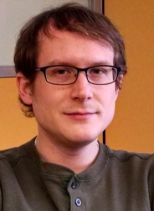
Nick Hutzler
Nick received his bachelor's degree from Caltech and a PhD from Harvard. His research focuses on polyatomic molecules for precision measurement of fundamental nuclear, particle, and chemical physics.
(Is that too short?)
Abstract
Molecules offer unique opportunities for fundamental physics and quantum information science compared to atoms, but the complexity of even the simplest molecules makes application of modern quantum methods very challenging. In these lectures we will discuss the
features of molecules relevant for their applications, especially for fundamental symmetries and quantum control, review recent developments, and provide an outlook for the future. Specific topics include an overview of molecular structure, optical control of molecules, enhancement of fundamental symmetry violations, and experimental platforms for molecular production, spectroscopy,
control, and precision measurement.
Kieran Flanagan
Prof. Kieran Flanagan is a Professor of Nuclear Physics and Head of the Nuclear Physics Group in the Department of Physics and Astronomy, he is also the Director of Photon Science Institute. After graduating from The University of Manchester he undertook his PhD studies with Prof. Jon Billowes and carried out experiments in laser spectroscopy at the University of Jyvaskyla, Finland. After his PhD he moved to CERN and worked for KU Leuven on laser spectroscopy and beta-NMR and then moved to Paris to work at IPN-Orsay. He was awarded an STFC Advanced Fellowship in 2009 and re-joined The University of Manchester. During this period he developed and demonstrated the Collinear Resonance Ionization Spectroscopy (CRIS) experimental method at ISOLDE CERN. This technique allowed the measurement of nuclear moments and charge radii in short-lived nuclei towards the limts of existence. In 2015 he was awarded an ERC consolidator grant, Fundamental Nuclear Properties Measured with Laser Spectroscopy (FNMPLS). His research has focused on size and shapes of nuclei and the underlying forces that bind the nucleus together. In 2024 he was awarded an Advanced ERC grant, Actinide molecules for exploring the frontiers of fundamental physics (ActMol). This project aims to identify novel exotic molecules to enable future experiments to search for new physics beyond the standard model. Critical to this project and programme is the development of a platform and method to produce intense cold beams of radioactive molecules for future precision experiments.
Abstract
Novel radioactive molecules constructed using octupole deformed nuclei (such as actinide isotopes) represents a new frontier for high precision experiments. When compared to molecules containing stable (or very long-lived) nuclei, they have gains in sensitivity to parity and time-reversal violating effects that are multiple orders of magnitude larger. However, due to measurement challenges there has until recently been no experimental spectroscopic data recorded on molecules containing short-lived radioactive isotopes. The first measurements of the molecular structure of RaF and AcF, were recently made using the technique of collinear resonance ionization spectroscopy (CRIS) at ISOLDE CERN. This method can perform high-resolution spectroscopy on short-lived radioactive molecules with lifetimes down to seconds. The approach used to produce and deliver such short-lived molecules leaves them as a relatively hot and fast beam (>30 keV). To ultimately utilize radioactive molecules as sensors for discovery will require them to be first cooled and decelerated. These lectures will describe the spectroscopic methods used to study short-lived radioactive molecules and present recent results from ISOLDE. They will also present new developments to study such species with table-top systems away from accelerator laboratories and explore potential routes to produce intense cold molecular beams.
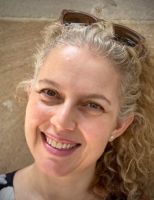
Jacinda Ginges
Associate Professor Jacinda Ginges is a theoretical physicist at The University of Queensland. Her expertise is on the development and implementation of atomic theory, with a focus on tests of the Standard Model and searches for new physics in precision atomic experiments, and on probes of nuclear structure. Jacinda completed her PhD in 2004 at UNSW, has worked at University of Alberta, UNSW, and University of Sydney, and has held several prestigious fellowships, including an ARC Future Fellowship.
Abstract
Title: The ABC of precision atomic theory: advancement, benchmarking, challenges
In these lectures I will describe the current capability and challenges in precision atomic calculations of heavy-atom properties, including those violating fundamental symmetries — atomic parity violation and electric dipole moments. I will focus on the methods that we use in our group, including the all-orders correlation potential for valence-core electron correlations and the radiative potential method for account of quantum electrodynamics. The importance of benchmarking the theory against experiment will be emphasised, and the hyperfine structure will be considered as a topical case in point.

Konstantin Gaul
Konstantin Gaul's research is dedicated to relativistic electronic structure theory, fundamental symmetries and their violation in molecules. He received his Ph.D. from the Philipps-University of Marburg, Germany at the end of 2020. He then continued working as a research associate at Marburg with research stays in Groningen, Netherlands (2021 & 2022) and at CERN, Geneva, Switzerland (2021). In late 2023 he was awarded a Liebig Fellowship by the funds of the German Chemical Industry, which enabled him to move on to the Helmholtz Institute at the University of Mainz, Germany, in the spring of 2024, to establish an independent junior research group.
Abstract
Molecules are among the best probes of fundamental symmetry violation beyond the Standard Model of particle physics. The inherent complexity of molecular systems poses not only a particular challenge to both theory and experiment, but it also provides a versatile playground for studying different aspects of fundamental physics with utmost precision. In my lectures, I will unveil the origins of the extraordinary sensitivity of molecules to signatures of new physics beyond the Standard Model. On this path, we will briefly discuss the basics of (relativistic) molecular structure theory, and subsequently explore advantageous features of molecular structure for searching for temporal variations of fundamental constants, dark matter and violations of fundamental symmetries, such as parity (P), time-reversal (T), charge conjugation (C), and local Lorentz symmetry. We will study the consequences of the new physics effects on the spectra of diatomic and polyatomic molecules. To foster the understanding of enhancements of fundamental symmetry breaking by molecular structure we will compare simple analytic atomic models with numerical ab initio treatments.
Rob Timmermans
Prof. dr. Rob Timmermans did his PhD research at the University of Nijmegen, after which he became a director-funded postdoctoral fellow at the Theoretical Division of Los Alamos National Laboratory. From 1998-2003 he was a fellow of the Royal Netherlands Academy of Arts and Sciences (KNAW) at the accelerator institute KVI. In 2003 he became full professor of theoretical physics at the University of Groningen. Since 2014 he is a member of the Van Swinderen Institute for Particle Physics and Gravity at the Faculty of Science and Engineering. He is at present vice-dean of the Faculty of Science & Engineering with portfolio education.
His research interests include theoretical particle physics, in particular low-energy tests in the context of the Standard Model effective field theory (parity, time-reversal, Lorentz & CPT symmetries, electric dipole moments, atomic parity violation, baryon number violation, neutron-antineutron oscillations) and theoretical hadronic physics, specifically the QCD few-body problem in the context of chiral effective field theory.
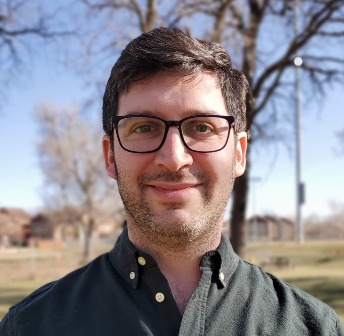
Yuval Shagam
Yuval is an Assist. Professor at the Technion’s faculty of chemistry and Solid State Institute since 2021, where he leads the trapped molecular ion group. The lab specializes in the development of quantum control methods for trapped molecular ions, with a focus on chiral molecular ions and precision metrology in search of parity violating interactions. He has received multiple awards and grants including ERC starting grant which was awarded in 2023 and funds the research in part.
Yuval earned his bachelor’s degree from the Hebrew University of Jerusalem in 2010 and completed his Ph.D. at the Weizmann Institute of Science in 2016, where he studied cold quantum-controlled chemistry. Following his doctoral work, he pursued postdoctoral studies at JILA, focusing on the search for an eEDM in trapped molecular ions.
Abstract
Title: Searches for PV and Beyond Standard Model physics with chiral molecules
Chiral molecules constitute an exciting platform for precision measurement, as they can be used to isolate parity violating (PV) interactions present in the Standard Model and beyond by comparing L and R enantiomers. However, as the complexity of the molecule studied grows experimental control and readout of these polyatomic molecules become increasingly challenging. Quantum-state resolved interrogation not only improves precision and helps avoid sources of systematic uncertainty, but also opens the door to using chiral molecules to search for exotic PV forces; especially if nuclear spins can be tamed.
In these lectures I will review the quantum description of chiral molecules including hyperfine degrees of freedom and I will discuss the experimental considerations in the design of quantum state preparation and readout methods for molecular precision measurement. In particular, I will discuss the differences between neutral and charged molecule experiments and the advantages that each brings to the table.
Application procedure
To apply, kindly fill out the online application form. Please note that you will be asked to upload the following documents:
-
Curriculum Vitae (max. 1 page)
-
Motivation letter, clearly stating why you want to join this summer school, what you will bring to the school and what you hope to learn (max. 1 page)
The deadline for accepting application is 1 April 2025. Applicants will be informed by 15 April 2025 of the selection outcome.
